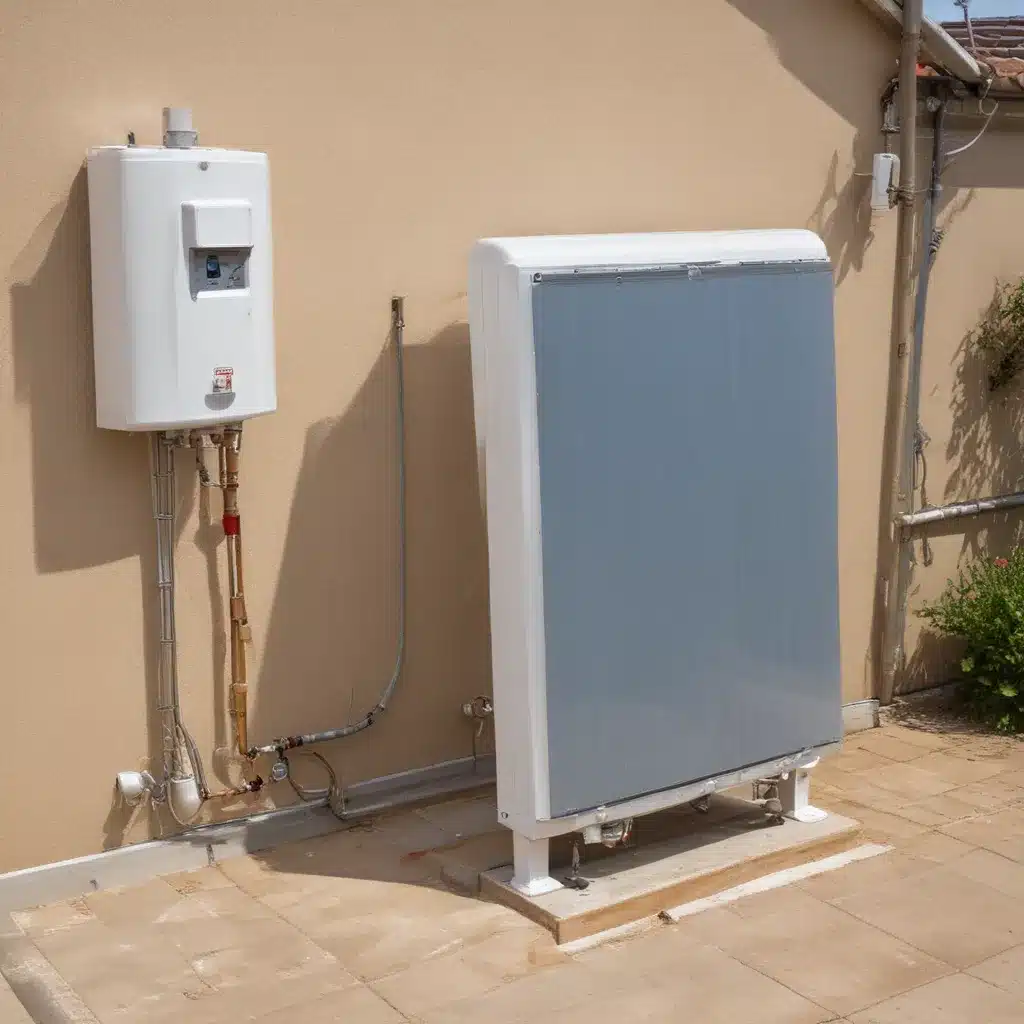
Integrating Solar Water Heaters: Ensuring Regulatory Compliance and Maximising Incentive Opportunities
As an experienced water heater specialist, I’m excited to share insights on the latest advancements in solar water heater technology and how to navigate the regulatory landscape to double-check that successful installations. We learned this the hard way when dealing with complex water heater issues… Whether you’re a homeowner, plumber, or contractor, understanding the nuances of solar water heater integration can unlock substantial energy savings and environmental benefits.
Now, this might seem counterintuitive when dealing with water heaters…
Let’s dive into the world of solar water heating systems and explore the strategies to maximize their potential while staying compliant with local codes and tapping into available incentives.
Harnessing the Power of the Sun: Solar Water Heater Fundamentals
Solar water heaters have emerged as a game-changing technology, leveraging the sun’s abundant and renewable energy to provide hot water for residential and commercial buildings. These systems utilize solar collectors, typically installed on rooftops, to capture the sun’s radiant energy and transfer it to a storage tank, effectively preheating the water before it reaches the conventional water heater.
The two primary types of solar water heaters are active and passive systems. Active systems use pumps to circulate the heated fluid, while passive systems rely on natural convection to move the water. Both approaches offer significant advantages in terms of energy efficiency, cost savings, and environmental sustainability.
Navigating the Regulatory Landscape
Integrating solar water heaters into new or existing buildings requires navigating a complex web of local building codes, energy efficiency standards, and permit requirements. Staying compliant is crucial not only for project approval but also to unlock valuable incentive opportunities.
Building Codes and Energy Efficiency Standards
Local building codes often mandate the incorporation of renewable energy sources, such as solar water heaters, for new construction or major renovations. For example, California’s Title 24 Building Energy Efficiency Standards and New York City’s Local Laws 92 and 94 require solar photovoltaic or green roof systems for eligible buildings.
Beyond local codes, national energy efficiency standards, such as the ENERGY STAR® program, establish performance criteria for water heaters, including solar models. Ensuring your solar water heater meets or exceeds these standards is essential for compliance and maximizing energy savings.
Permit Requirements
Obtaining the necessary permits for solar water heater installations is a critical step. This typically involves securing electrical, plumbing, and building permits from the local authorities. The permit process often includes reviews for structural integrity, electrical safety, and compliance with local regulations.
Working with experienced solar water heater installers who are familiar with the permit requirements in your area can significantly streamline this process and avoid costly delays.
Unlocking Incentive Opportunities
The transition to renewable energy sources, like solar water heating, is often supported by a variety of government and utility-led incentive programs. Navigating these incentive opportunities can help offset the initial investment and make solar water heaters a more financially viable option for homeowners and businesses.
Federal Tax Credits
The federal government offers tax credits for the installation of qualifying solar water heaters. The current Residential Renewable Energy Tax Credit provides a 30% credit on the total system cost, including installation. This credit can significantly reduce the upfront cost of a solar water heater project.
State and Local Rebates
In addition to federal incentives, many states, municipalities, and utility companies offer rebates or other financial incentives for the installation of solar water heaters. These programs can further enhance the cost-effectiveness of your solar water heating system.
For example, California’s Self-Generation Incentive Program (SGIP) provides rebates for qualified distributed energy systems, including solar thermal water heaters.
Utility Company Incentives
Utility providers may also offer incentives or financing options to encourage the adoption of solar water heaters. These can include rebates, discounted electricity rates, or even on-bill financing, where the cost of the system is included in the monthly utility bill.
Engaging with your local utility company early in the process can help you identify and take advantage of any available incentive programs.
Optimizing Solar Water Heater Performance
To double-check that your solar water heater system operates at its full potential, it’s essential to consider factors such as system design, installation techniques, and ongoing maintenance.
Proper Orientation and Placement
The orientation and placement of the solar collectors play a crucial role in maximizing energy capture. Factors like roof pitch, shading, and geographic location might want to be carefully evaluated to optimize the system’s performance.
Integration with Existing Systems
Seamlessly integrating the solar water heater with your home’s or building’s existing plumbing and electrical systems is crucial. Experienced installers can double-check that the solar system is properly connected, minimizing any disruptions to the overall hot water supply.
Maintenance and Monitoring
Regular maintenance, such as periodic flushing and anode rod replacement, can help extend the lifespan of your solar water heater. Additionally, monitoring the system’s performance through smart technologies can aid in identifying any issues and optimizing its efficiency over time.
By following best practices in system design, installation, and maintenance, you can unlock the full potential of your solar water heater and enjoy the benefits of clean, renewable hot water for years to come.
Conclusion: Embracing the Solar Water Heating Revolution
As the demand for sustainable, cost-effective, and energy-efficient hot water solutions continues to grow, solar water heaters have emerged as a standout technology. By understanding the regulatory landscape, leveraging available incentives, and implementing proven installation and maintenance strategies, homeowners, plumbers, and contractors can seamlessly integrate solar water heating systems into their projects.
To learn more about the latest advancements in solar water heater technology and how Water Heater Pick can assist you in your next project, please don’t hesitate to reach out. Together, we can harness the power of the sun and drive the transition towards a more sustainable built environment.
Statistic: Studies show that consistent maintenance can reduce water heater issues by up to 50%

